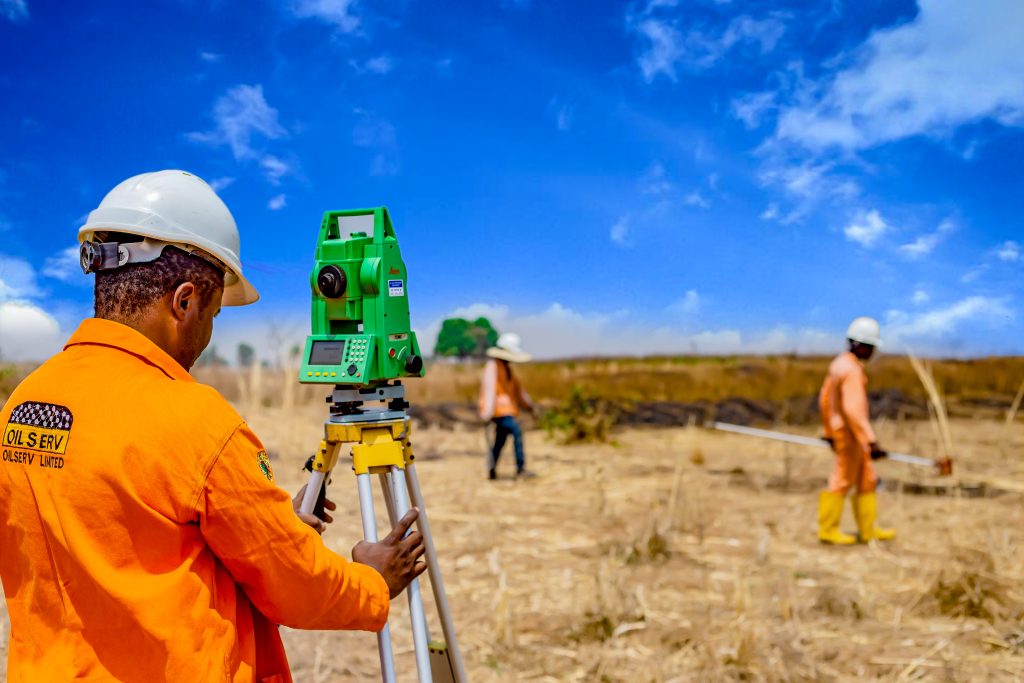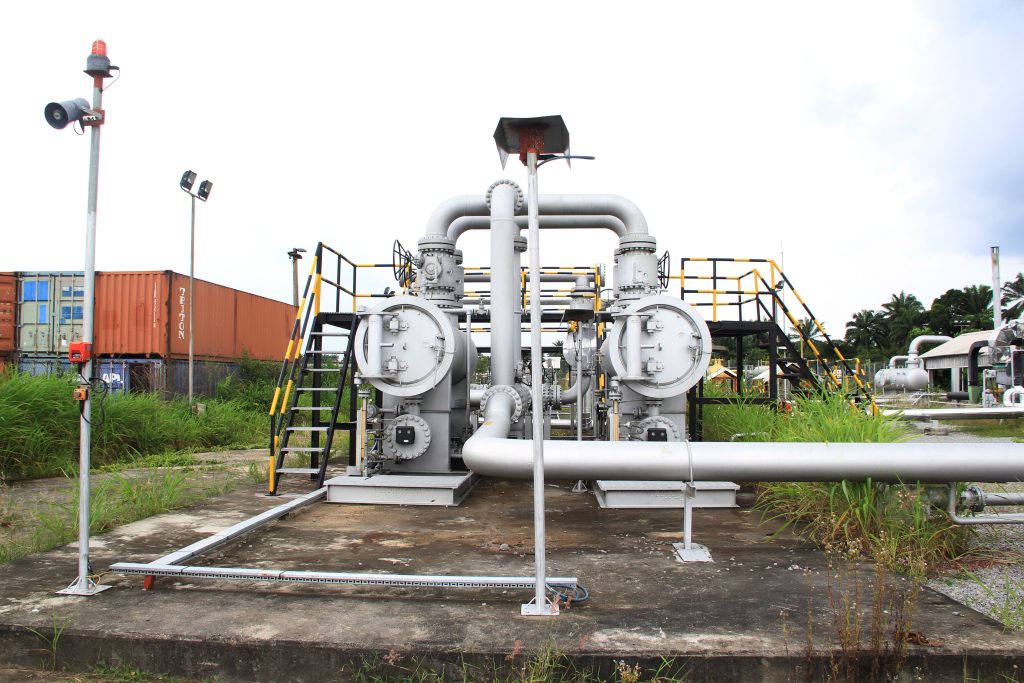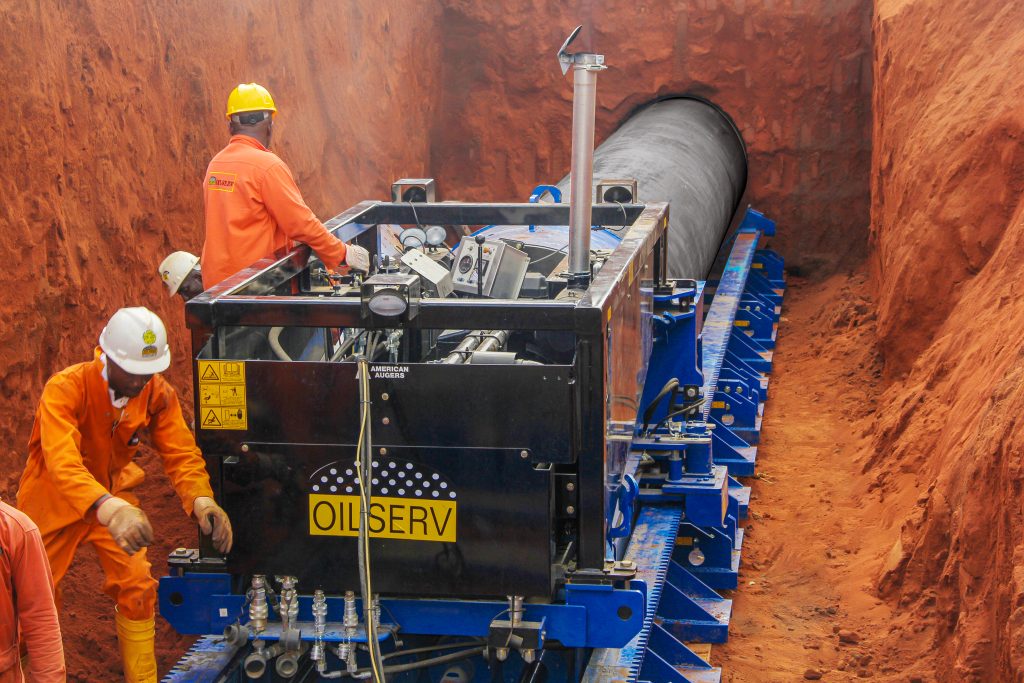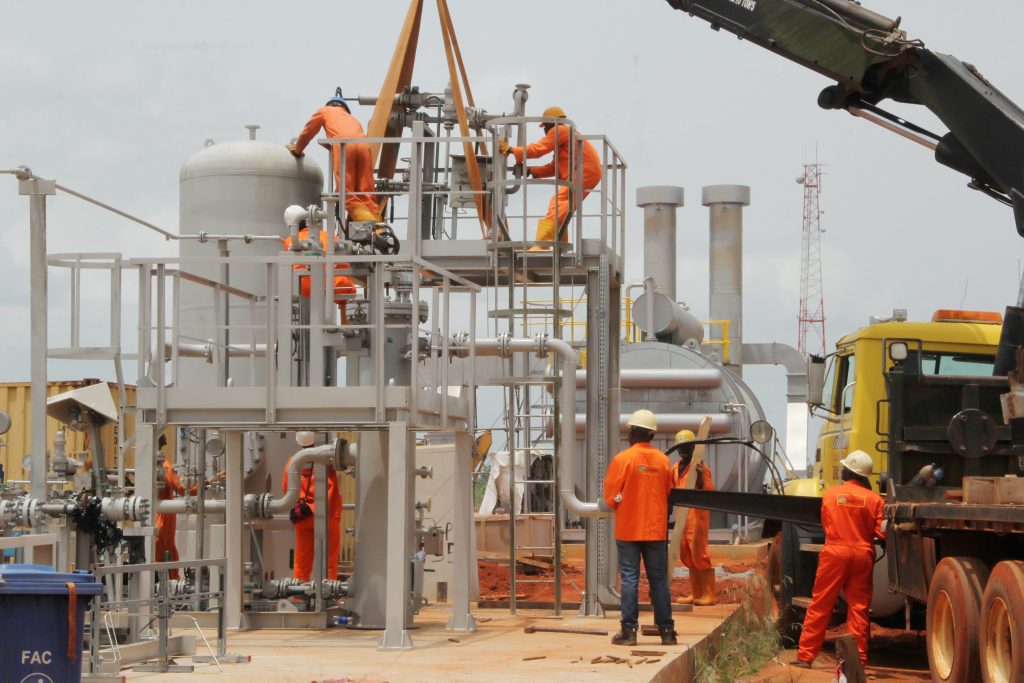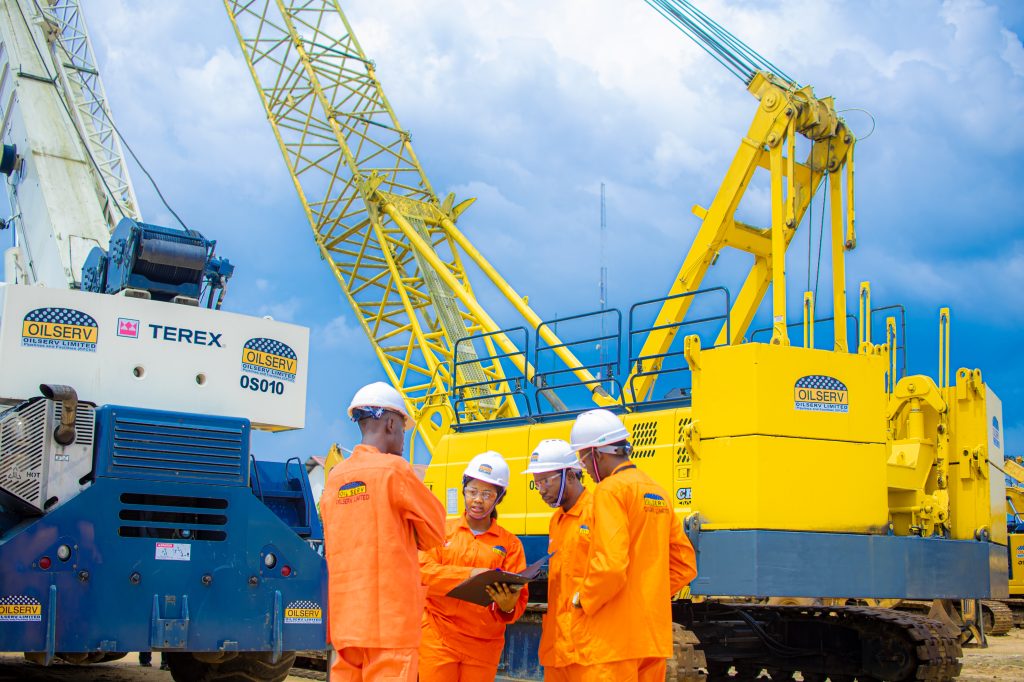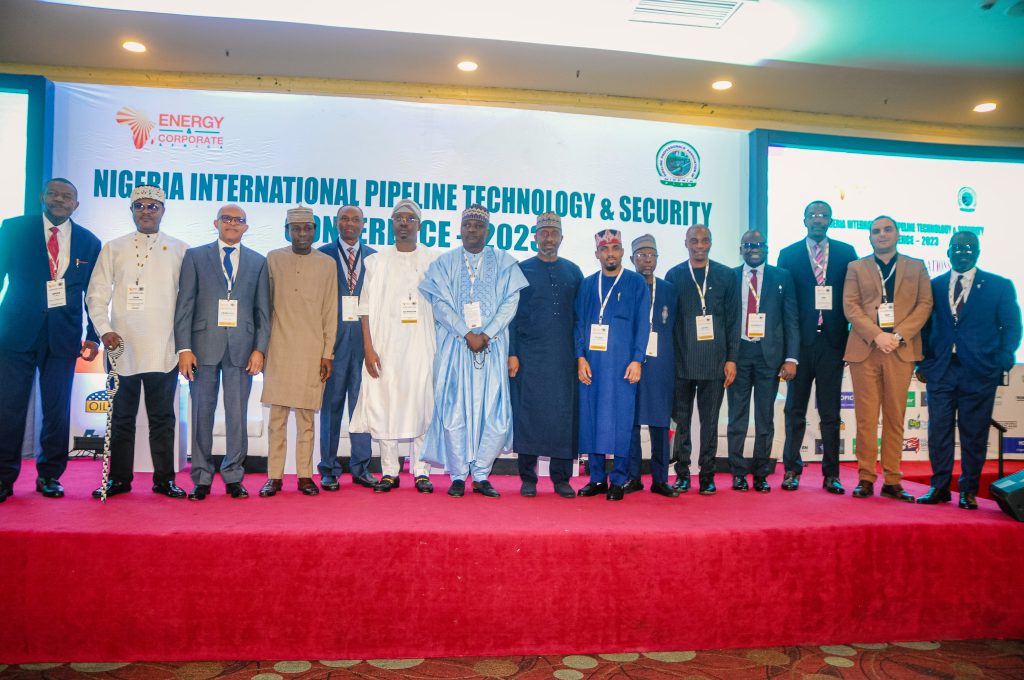
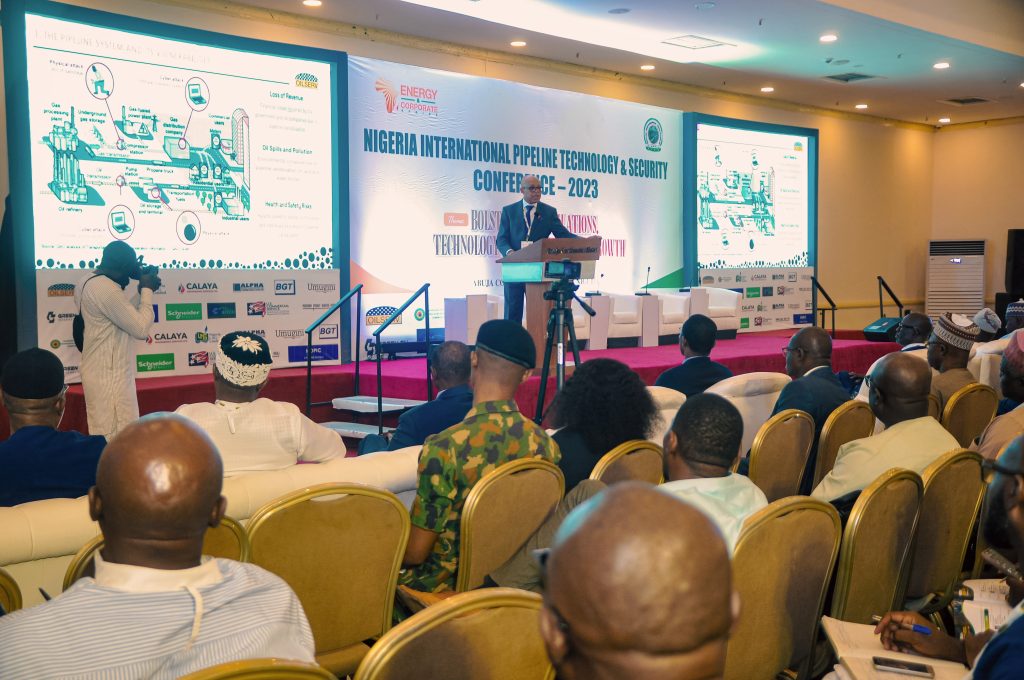
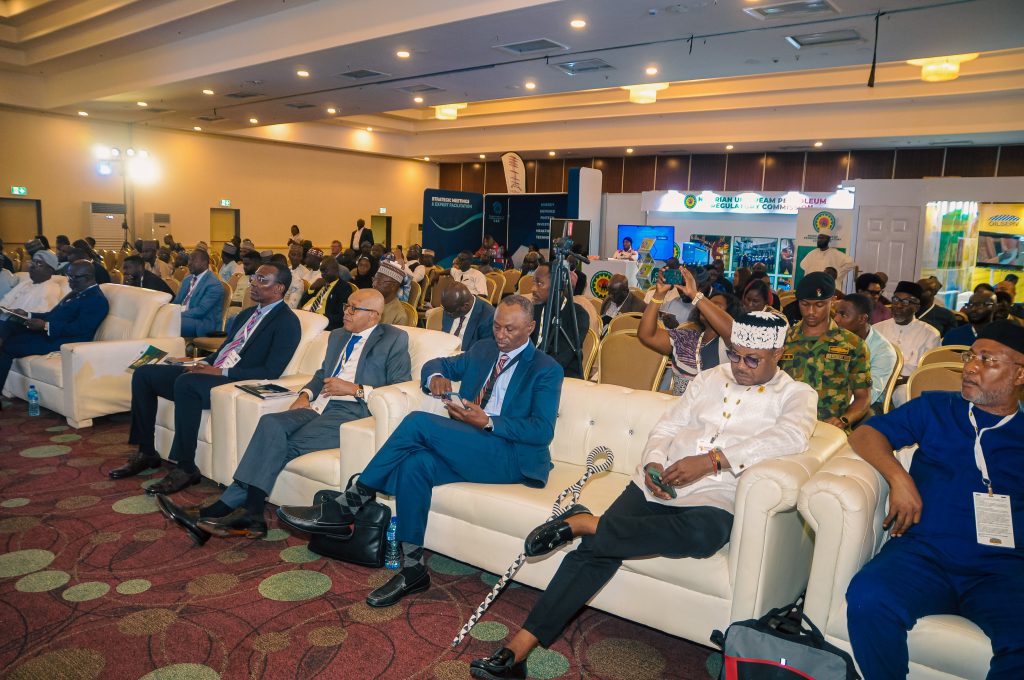
With Nigeria’s oil export curtailed by massive pipeline vandalism and oil theft, the Chairman/GCEO, Oilserv Group, Engr. Emeka Okwuosa, CON has blamed obsolete pipeline systems that lack latest monitoring technology for the constant attacks on the crude oil pipelines across the Niger Delta region. Dr. Okwuosa who disclosed this at the Nigeria International Pipeline Technology and Security Conference organized by the Energy and Corporate Africa and Pipelines Professionals Association of Nigeria in Abuja, said most times, pipeline operators in the country have had to rely on physical presence to monitor and secure the pipelines. The conference has the theme: Bolstering regulations, technology, and security for growth.
During his keynote address titled, A Critical Perspective of an Indigenous Pipeline Operator/Service Company towards bolstering technology and security in Nigeria’s Pipeline Sector, the Oilserv boss began by noting that “pipelines and their associated infrastructure are vital assets within the industry, serving as a critical means for transporting hydrocarbons from production facilities to various destinations, including storage, distribution, and export. They play a pivotal role in supplying energy to residential, commercial, and industrial sectors while also significantly contributing to foreign exchange earnings in producing economies.
Pipeline assets require substantial capital investment due to the high costs associated with engineering, construction, maintenance, and surveillance. These assets are strategically situated, often in challenging terrain, making them susceptible to vandalism and destruction. To ensure their long-term functionality, operators must carefully manage pipeline networks, considering cost, technological advancements, geographical challenges, and the specific needs of local communities. A strategic approach is necessary to justify investments and uphold the integrity of these vital resources.”
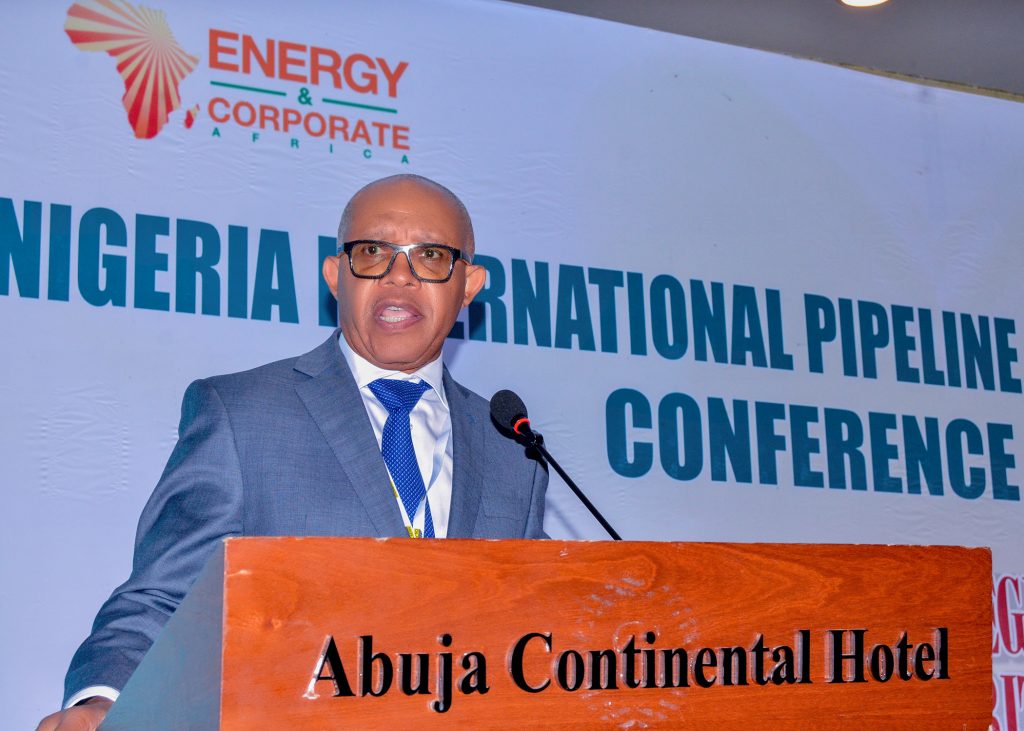
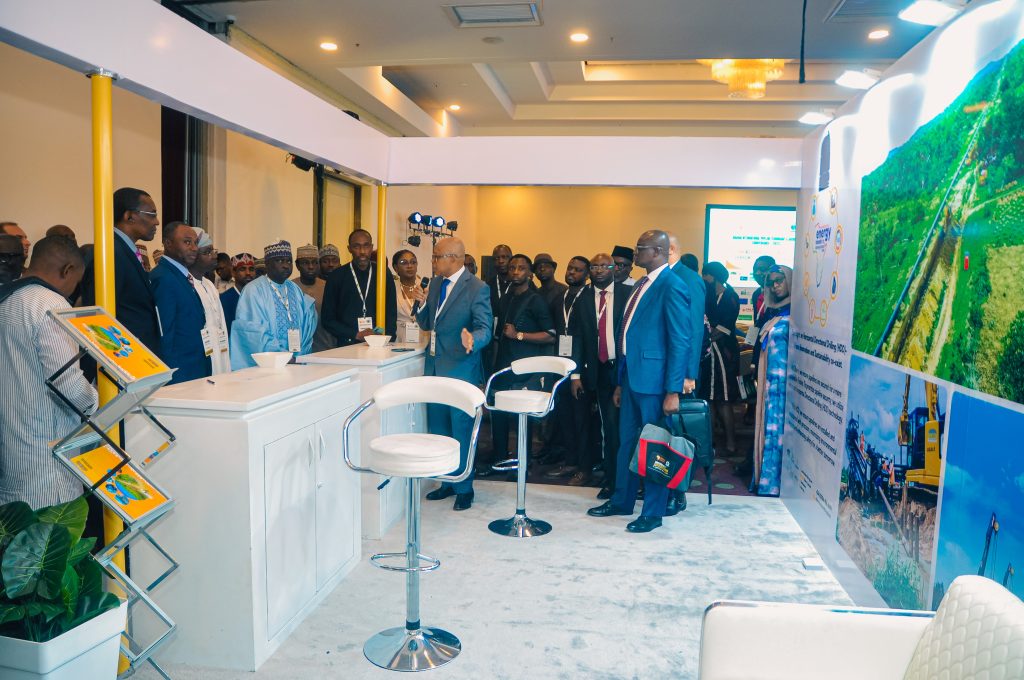
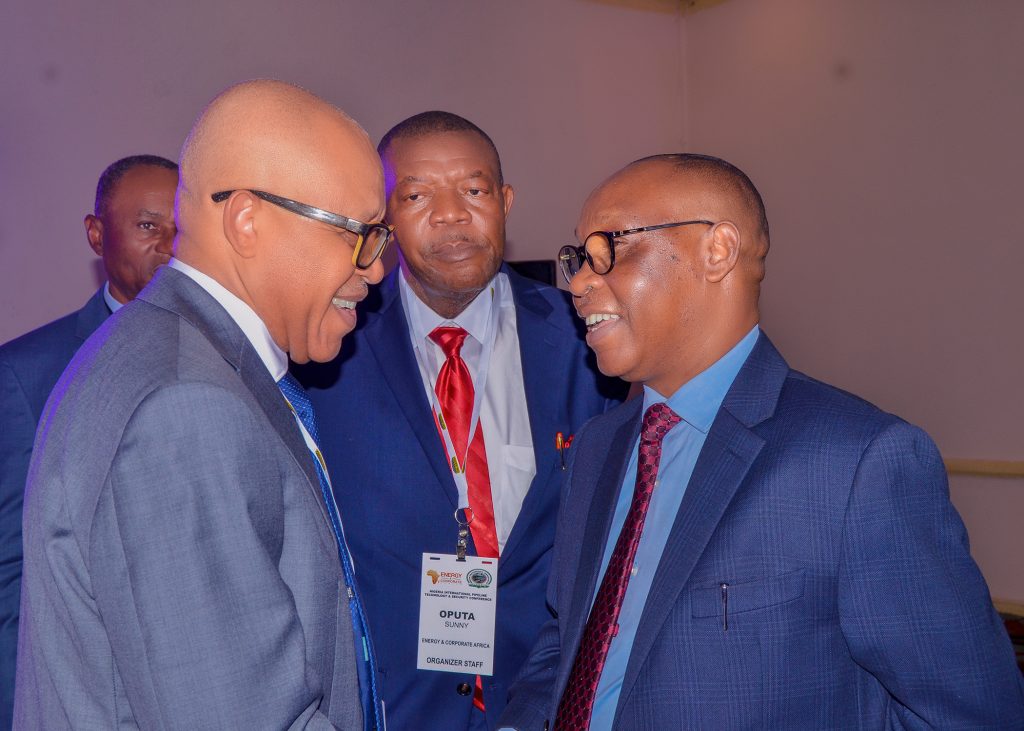
Dr. Okwuosa maintained that “pipeline security extends beyond the protection of physical assets to encompass the safeguarding of technology systems that monitor product flow pressure, asset integrity, billing metrics, and operating procedures. These technology systems are exposed to risks such as cyberattacks, malware, and acts of vandalism. Implementing a robust security system and a well-thought-out response plan is imperative for safeguarding pipeline assets. This entails addressing existing threats, proactively anticipating potential risks, and mobilizing resources to protect these assets.
He continued by emphasizing that the primary issues concerning theft within the crude oil pipeline delivery system, particularly the trunk lines responsible for exporting oil, revolve around safeguarding from the wellhead. He elaborated on this by highlighting the vulnerability of flow lines originating from the wellheads, which transport oil to collection points. These flow lines, many of which were constructed decades ago, lack the modern technological advancements available today. Thus, monitoring pipeline right-of-way involves round-the-clock observation by designated security personnel (military, state security, civil defense, police and local eyes) and robust technology like drones, telecoms, radar/satellite, and cyber tools. This allows for quick response to threats within a safe distance and minimal disruptions to service. The absence of a fiber optic detection system in most of these lines necessitates a heavy reliance on physical security (human interventions) measures which is best avoided due to risks of fatigue, panic, judgment errors, limited vision, collusion, and negligence.
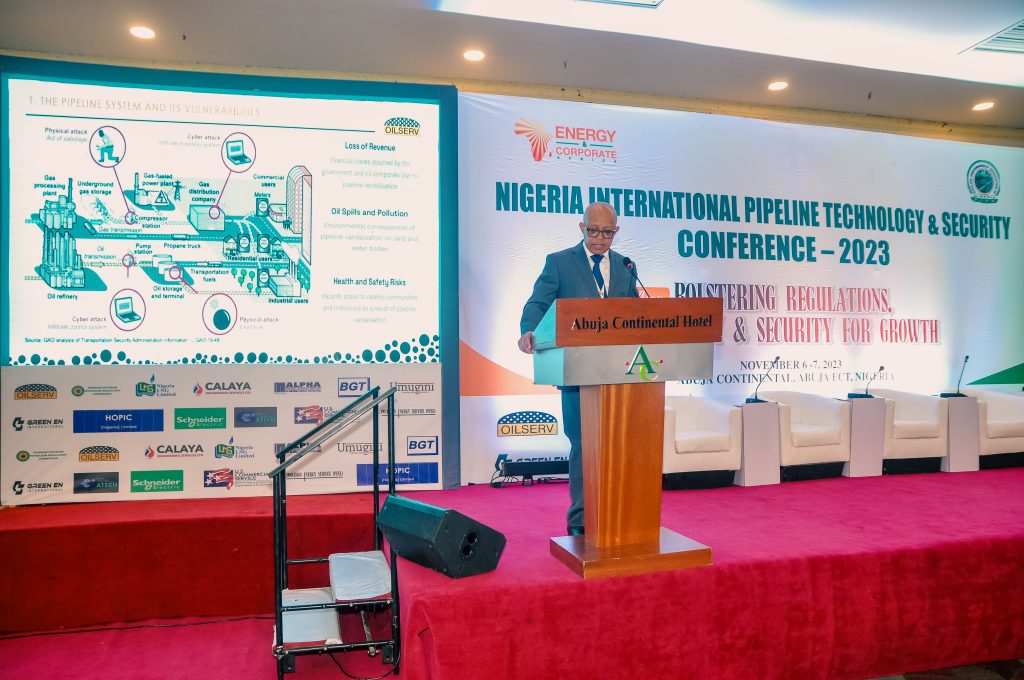
Engr. Okwuosa recommends the “adoption of EPC technologies for safeguarding pipeline assets during construction, with a focus on engineering codes and specifications. Technologies like Horizontal Directional Drilling (HDD) and tamper-proof reinforcement, already utilized in advanced countries, offer effective solutions. The primary security strategy involves engaging various stakeholders, including the government, host communities, and industry players, while upholding minimum maintenance standards. Operators and asset owners must prioritize proper cathodic protection systems to prevent corrosion and maintain pipeline functionality. Attacks on pipeline assets serve as valuable learning experiences and often lead to national security concerns, necessitating a coordinated response. Industry leaders should undergo essential training, cooperate, and prioritize the national economy’s well-being over self-interests.”
He concluded by emphasizing that Nigeria’s energy goals depend on efficient crude oil transportation to refineries, export terminals, and gas transportation to the AKK and Nigeria-Morocco Gas Pipelines. These infrastructures are vital for economic growth. Security and employment concerns are significant, and monitoring over crude oil pipelines needs improvement. Achieving production and export quotas is a key performance metric for operators, and collaboration between industry players and Nigerians is essential. The conference seeks to address these challenges, enhance pipeline functionality, boost energy production, and contribute to economic development by inviting participants to share ideas and solutions.

